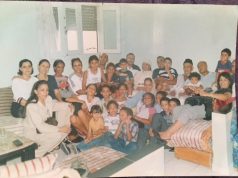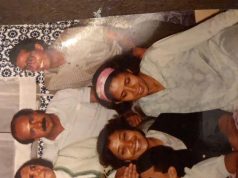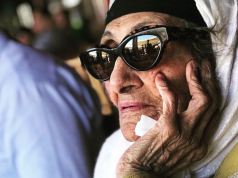
Frankfurt, Germany- My 93-year-old grandmother passed away last month. If you’d have seen her last year, the idea of her passing away that soon would never have crossed your mind. She had a very sharp memory and was in very good health until she broke her leg when she misstepped a stair after finishing her ablutions. Since then, her health deteriorated day after day, until she was no more. She died peacefully surrounded by her grandchildren. Many times, due to her advanced age, my uncles suggested to her to use a small rock for her ablutions, but with her, there was no leeway for compromise. Once she convinced herself about something, nobody could change her mind. After her death, some of my relatives suggested that the aforementioned trait led to her undoing, but in all truth, this was the very reason her sons carved out a successful career in their lives.
Take as an example my father, her firstborn of seven. Despite her illiteracy –She only learned to read and write after crossing the 60-year-old mark thanks to a state-sponsored program that aimed to combat illiteracy in Morocco– she was painstakingly monitoring his education to a degree rarely seen among nowadays mothers. Starting from the age of four, she used to wake him up in the wee hours of the day, sometimes around 4:30 am, to take him to a nearby mosque to learn the holy Quran. At the age of 9, he had memorized all of it.
When he grew up a little bit, my dad used to head directly after school to play soccer. He had plans to make a living out of it. My grandmother had other plans for him. She preferred him to rather pursue his studies and used to walk daily around one hour to the training ground, whenever he failed to show up after school. She would grab her stick and head to the soccer field to bring him back.
Of course, my dad stood up to her tactics. My father’s friends devised a plan to hide him. Whenever one of them saw her coming to the field, he would alert them so that he could hide. She would then leave the field, thinking he was elsewhere as his friends suggested.
But their devised plan was short-lived as one of my dad’s friends disclosed the secret. My grandma successfully lured him with biscuits and candies.
And ever since that day, she would invade the field with her stick in hand, forcing them to stop the play. “I will interrupt the play. None of you will play until you bring my son,” she used to say. She would even run after the ball and try to catch it if they denied knowing his hiding place. In front of the fait accompli, they had no choice but to take him out of his hideout and hand him to her. Subsequently, they would even chase my dad away and ask him to go back home, for fear grandma would come and interrupt their play.
Like most Moroccans of her generation, grandma married really early, at the age of fourteen. She recalls the event with a lot of sorrow. My grandpa, who belonged to an adjacent tribe in Zaër, married her a few years after his return from Italy. There he was stationed part of France’s infamous goumiers, in the wake of the second world war. Before that, he had married an Italian woman and settled in the south of Italy, but once their onlyborn young girl passed away, he returned to the homeland. My grandma recalls her marriage with a lot of pain. I remember her telling me how she fled her tribe once she heard her dad decided she would marry grandpa. She spent the night on top of a tree, fearing wolves would attack her at night. Eventually, her family found her the next morning and she was punished for her actions. But luckily for her, she grew up to love my grandpa. That sad event “was a mere scar in my memory,” as she many times told me.
My dad used to always remind me that without her persistence, he would never have succeeded in his life.
Yet my grandmother was illiterate for the most part of her life. Yes illiterate, but she was not ignorant. There is a fine thread separating ignorance and illiteracy.
In memory of this great woman and of all unsung grandmothers around the world, I wrote these lines. Goodbye grandmother, “we are to God and Unto Him, we Shall return.”





